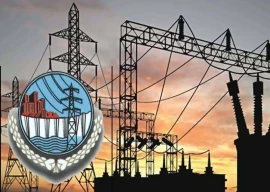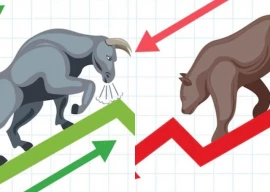
The FBR has found these so-called rich tax dodgers with the help of data from the National Database and Registration Authority (NADRA) and they reportedly owns big houses, expensive cars and spends heavily on travelling. However, whether these people will be forced to pay their due taxes is not clear as corruption in tax departments and political influence can hamper such efforts.
According to an expert, the number is bigger than 700,000 as a large number of people do not pay taxes, particularly the service providers like physicians and lawyers. Equality in the tax burden and streamlined and simplified procedures for payments can encourage them to fulfill their responsibilities. FBR has also asked scores of corporate non-filers to submit tax returns.
Pakistan has one of the lowest tax-to-gross domestic product ratios at 9.3 per cent due to widespread tax evasion and with that comes the pressing need to bring into the net the tax dodgers. According to a World Bank report, Pakistan loses Rs796 billion every year because of non-payment of taxes.
The bank is also providing funds for undertaking reforms, introducing automation and tackling corruption in the tax system in an effort to help the country improve revenue collection.
Evaluate data
Economist AB Shahid said the government should devise a system to impose fair taxes, curb evasion and bring potential taxpayers into the net. Every business and service has an association and Shahid suggested that the FBR must approach each of them to evaluate data to find out potential taxpayers and those paying less than their liability. In this regard, he cited the example of physicians most of whom do not pay taxes.
However, Shahid cautioned that no threat will work and FBR should show fairness and transparency in its performance and control corruption. “No incentive is there for people, which could encourage them to help the government and pay taxes. Government services are missing as there is no security for people and prices of commodities and other items rise without any check so why would people pay taxes,” he said.
Direct tax and automation
BMA Capital Assistant Vice President Research Abdul Shakur underlined the need for increasing collection of direct tax (income tax). According to FBR figures, direct tax accounted for 35 per cent of total tax collection in eight months (July to February) of the current fiscal year.
He called for the need of imposing tax on the agriculture sector, which has around 22 per cent share in economy but contributes only around two per cent in taxes. However, he said “if direct tax collection does not show a significant growth, then the government should increase the collection of indirect taxes (sales tax, customs and federal excise duty) – a move which will pay in the short run.”
Shakur said the government should rationalise taxes, broaden the net and improve administration. Automation is an area that needs to be focused on because with automation there will be less avenues for evasion and interaction between taxmen and taxpayers will come to a minimum.
“People are aware of their responsibility to pay taxes but there is no willingness because of inequality in taxes and insignificant services from the government. When the state spends on the social sector, particularly health and education, and people get better services then they will cooperate,” he added.
the writer is incharge Business desk for the Express tribune and can be contacted at ghazanfar.ali@tribune.com.pk
Published in The Express Tribune, March 7th, 2011.







1731570357-0/elon-musk-(1)1731570357-0-270x192.webp)















COMMENTS (1)
Comments are moderated and generally will be posted if they are on-topic and not abusive.
For more information, please see our Comments FAQ